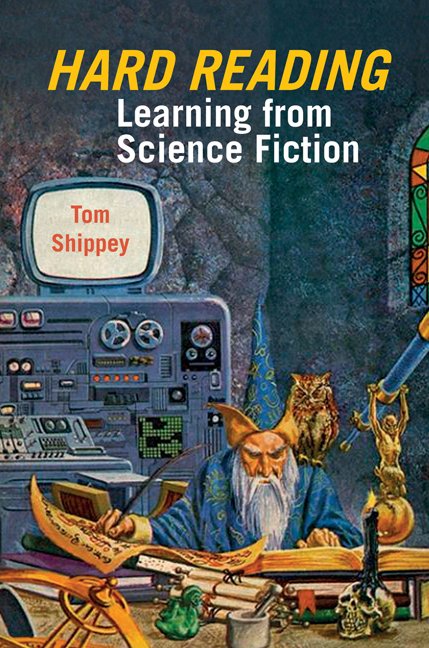Book contents
- Frontmatter
- Dedication
- Contents
- List of Figures
- Note on References
- A Personal Preface
- What SF Is
- SF and Change
- SF and Politics
- 11 A First Encounter with Politics
- 12 Language Corruption, and Rocking the Boat
- 13 Just Before the Disaster
- 14 Why Politicians, and Producers, Should Read Science Fiction
- 15 Saying (When Necessary) the Lamentable Word
- References
- Index
14 - Why Politicians, and Producers, Should Read Science Fiction
from SF and Politics
- Frontmatter
- Dedication
- Contents
- List of Figures
- Note on References
- A Personal Preface
- What SF Is
- SF and Change
- SF and Politics
- 11 A First Encounter with Politics
- 12 Language Corruption, and Rocking the Boat
- 13 Just Before the Disaster
- 14 Why Politicians, and Producers, Should Read Science Fiction
- 15 Saying (When Necessary) the Lamentable Word
- References
- Index
Summary
This article began as a talk delivered at Mexicon, in Scarborough, on 29 May 1993. It was published in Interzone 88, again in the Dutch literary journal File, and in a final revised form in Foundation (all in 1994). It counts, then, as one of those pieces of mine that have attracted most attention within the sf world. However, and probably not coincidentally, it also led to a clash in the literary world that forever terminated a not-very-beautiful relationship. As I recall, I had been invited to talk on the BBC radio literary programme Kaleidoscope, and got there to find that I was on trial for only having included one female author (Ursula Le Guin) in my Oxford Book of Science Fiction Stories. This actually was not true, in that a glance at the notes in the back would have shown that ‘Raccoona Sheldon’, alias ‘James Tiptree Jr.’, was really Alice Sheldon, while ‘Lewis Padgett’ was a blend, the proportions still unknown, of Henry Kuttner and his wife C.L. Moore. And, furthermore, a number of the stories selected, notably those by Sheldon, Schmitz, ‘Cordwainer Smith’, Wolfe and the end-piece by David Brin, were strongly femaleoriented and female-dominated. Still, there is no denying that in early sf, as in most pre-modern literary genres, female authors were underrepresented and often obliged to disguise themselves under initials and pseudonyms, like ‘George Eliot’ and the Brontë sisters: the past did not play by our rules.
Anyway, the smoke from this exchange of views was just about clearing when the lady moderator, perhaps a bit anxious about the social situation, began a long burble (in a markedly upper-class accent, and with the characteristically British upper-class iteration of ‘one’) about how unfair it was that people criticised programmes like this, and the Booker award business, just because one always found oneself interviewing people one couldn't help meeting at dinner-parties, because they were the ones who wrote the most interesting books. Not at all, I replied. The accusation is that you ignore people who write much more interesting books, just because you don't meet them at dinner-parties.
- Type
- Chapter
- Information
- Hard Reading: Learning from Science Fiction , pp. 274 - 292Publisher: Liverpool University PressPrint publication year: 2016



